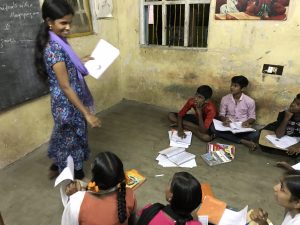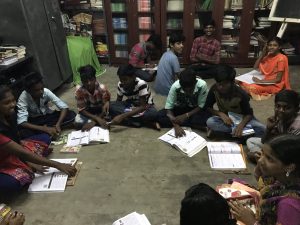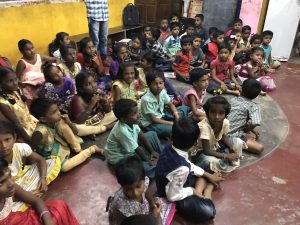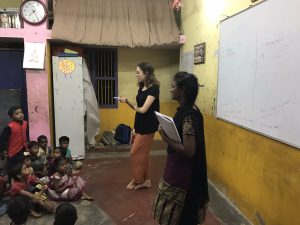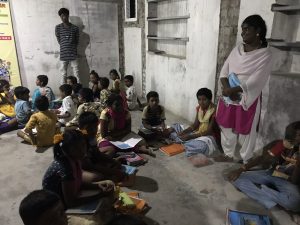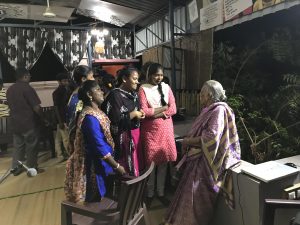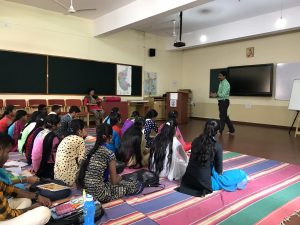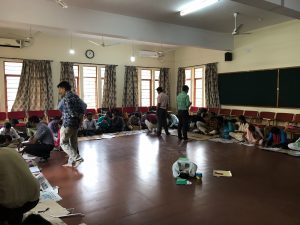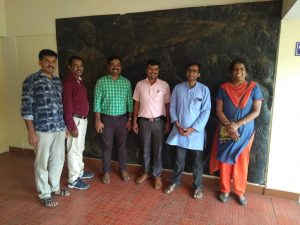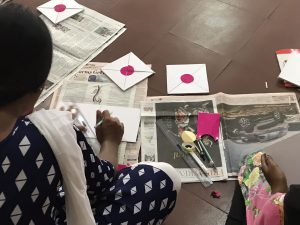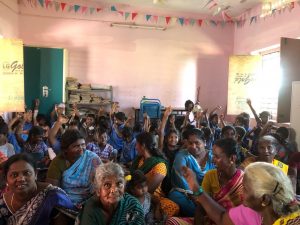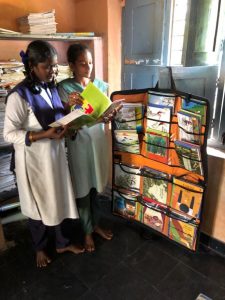Madurai Seed Narpanigal
Madurai, Tamil Nadu
We are glad to see the growth of Seed Narpanigal from 2007 when we started supporting them. Under the guidance of Asha Fellow A. S. Karthik Bharathi and his dedicated team, Seed has grown and blossomed into a very well respected organization in Madurai. Their commitment to children and youth is steadfast, their belief unshaken that “everyone has great potential, when children are supported with adequate resources and opportunities they can grow and achieve great heights.” A particular focus this year has been art, craft, and theater, each of which helps a child become confident, articulate, and believe in themselves.
Some highlights:
4 young people are settled in full time jobs
61 students (75% first generation learners) took the public exams in classes 10, 11, and 12
26 youth received a stipend from Asha to help their college education as they taught at the centers.
The work continues to provide supplementation education to students at two hostels serving children from very poor families from the villages around Madurai (one for high school students and one for primary school students). Children attend local government schools.
A total of 475 children and youngsters have been impacted by Seed’s work.
In the words of Seed Narpanigal, “Asha does not just provide monetary donations; the yknow the problems of children and young people inside out and are constantly in touch with Seed Narpanigal’s interventions. Asha provides great knowledge, advice, and moral support. They are great mentors to this organization and its people. They visit the Seed centers regularly, having a personal connection and has inspired our children and young people a lot.”
Mobile Science Van (Vignyana Vahini)
HD Kote Taluk, Mysore District, Karnataka
The Mobile Science Van project started as a way to take hands-on Science activities and experiments to government schools that lack a Science lab. It has grown to include a library component, Science fairs, Science days, teacher training activities, and more. A particular achievement we are proud of is how it has helped some government school Science teachers blossom into better teachers, curious scientists, leaders, and resource persons looking to constantly improve themselves. These teachers complete negate the assumption that government school teachers apathetic. The right kind of programs can bring tremendous change in their attitude.
The government regularly invites these teachers to conduct workshops for other teachers.
Above pictures (clockwise): 1. Harish from a government high school in Nanjangud taluk talking to teachers at a workshop organized by SVYM. 2. Harsha, Nandeesh, Satish, and Kiran and other government school teachers helping at the workshop. 3. Asha Boston volunteer Melli and the government school teachers and Praveen, Head of Education at SVYM. 4. Teachers at the workshop hard at work making teaching-learning materials.
The fact these government teachers are invited by the government itself to conduct workshops makes us very proud of them.
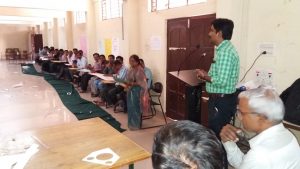
Harsha and Satish at the Government DIET training program. Comments from attending teachers: “Today Harsha and Kiran gave wonderful class on model making workshop at Mandya DIET with great honor …. so thankful to Harsha and team.”
Viveka Tribal Center for Learning
HD Kote Taluk, Mysore District, Karnataka
Because of the change in the government funding for the school, the school was forced to charge some fees. After an initial decline in enrollment, the school is back to having 411 students (close to 30% more than the previous year), a testament to the value parents feel the school provides. 91% of parents attended the parents meeting organized by the school. Praveen, the new education head and deputy CEO of SVYM is bringing in some changes. Praveen feels we should strengthen the government run schools for tribal children (run by the Department of Tribal Welfare) and phase out classes 1 to 7 at VTCL. Instead VTCL will become the high school in the area. This would achieve the dual goal of improving the government schools and reducing the financial needs of VTCL. We look forward to these achievements.
We continue our discussions on developing the arts and sports components in the school, something the tribal children are naturally good at. The tribal children are so talented in the arts and sports, we feel we have to focus on career path options in these fields. The SVYM team also visited Kalkeri Sangeet Vidyalaya (KSV), an Asha Boston supported project in the Dharwad area, to see how KSV has a very well developed curriculum in music alongside the core curriculum.
Sahanivasa’s Work at Government Schools
Chittor district, Andhra Pradesh
The poorest and the most advantaged attend government schools today. Sahanivasa provides supplemental education to the children in these schools. Sahanivasa is involved in a lot of social issues and activism, and this influences their work on education – engaging with the local population, holding government schools accountable for the population’s education needs, partnering with government school teachers to improve outcomes, and ensuring government schools are not closed down because of policies that are not aware of ground realities.
Recent achievements:
- Completed construction of additional facilities in a government school by mobilizing labor and funds from the local population to complement Asha Boston’s support
- A third of the teachers at the supplemental education centers are old students. A community helping itself means that there is less dependence on teachers from the outside.
- Zero dropouts, though the students are often children of rural migrant workers.
- Continue to maintain the 100% pass rate and equip the children to be on par with children from other schools
Asha supports about $18,000 each year, covering
- 30 (6 female and 24 male) teachers in 10 high schools covering 1033 students (546 girls and 487 boys). These are teachers who conduct the supplemental classes
- 15 teachers (13 female and 2 male) in 15 primary schools covering 570 students (308 boys and 262 girls)
- Parent monthly meetings to create a vested interest among them in their children’s education
- Teacher training and monthly meetings
The teachers come from the villages are in. As such they are familiar with the issues the children face, and quite often know the children making it easier to help them and hold them accountable. The teachers in turn are respected by the community for this service and are held in high regard.

